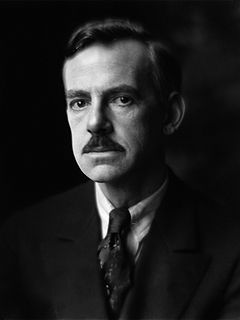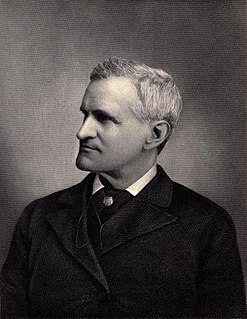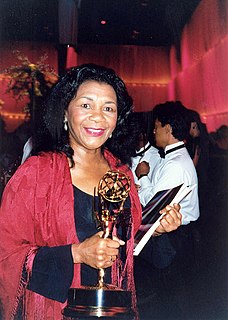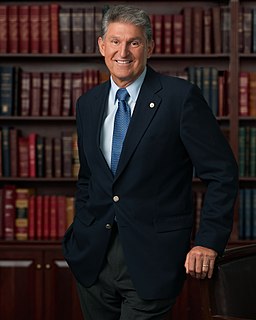A Quote by Eugene O'Neill
If a person is to get the meaning of life he must learn to like the facts about himself -- ugly as they may seem to his sentimental vanity -- before he can learn the truth behind the facts. And the truth is never ugly.
Related Quotes
There is a world of difference between facts and the truth. You can have so many facts that you don't deal with the truth. You never get to the truth. You have the places where, the people who, the times when, the reasons why, the methods how - blah blah. And never get to the human truth. The human truth is as elusive as the air. And as important as the air.
Faithfulness to the truth of history involves far more than a research, however patient and scrupulous, into special facts. Such facts may be detailed with the most minute exactness, and yet the narrative, taken as a whole, may be unmeaning or untrue. The narrator must seek to imbue himself with the life and spirit of the time. He must study events in their bearings near and remote; in the character, habits, and manners of those who took part in them. He must himself be, as it were, a sharer or a spectator of the action he describes.
I think everybody's talking about like facts and truth and you know like that 'We're here to fact check' and all of that, that's the base material of journalism. You cannot have journalism without facts and truth. But if facts and truth were what actually you know sort of moved people's lives and moved their decision-making like the election would have had a different outcome.
[The scientist] believes passionately in facts, in measured facts. He believes there are no bad facts, that all facts are good facts, though they may be facts about bad things, and his intellectual satisfaction can come only from the acquisition of accurately known facts, from their organization into a body of knowledge, in which the inter-relationship of the measured facts is the dominant consideration.
When the truth is ugly, people try to keep it hidden, because they know if revealed, the damage it will do. So they conceal it within sturdy walls or they place it behind closed doors or they obscure it with clever disguises but truth, no matter how ugly, always emerges. And someone we care about always ends up getting hurt. And someone else will revel in their pain and that's the ugliest truth of all.
Truths emerge from facts, but they dip forward into facts again and add to them; which facts again create or reveal new truth (the word is indifferent) and so on indefinitely. The 'facts' themselves meanwhile are not true. They simply are. Truth is the function of the beliefs that start and terminate among them.
A Christian boy or girl can learn mathematics, for example, from a teacher who is not a Christian; and truth is truth however learned. But while truth is truth however learned, the bearing of truth, the meaning of truth, the purpose of truth, even in the sphere of mathematics, seem entirely different to the Christian from that which they seem to the non-Christian; and that is why a truly Christian education is possible only when Christian conviction underlies not a part but all, of the curriculum of the school.
In fact, I always assumed that most everything I read was true, to one degree or another. I couldn't articulate this fact until after I read Tim O'Brien's The Things They Carried and he discussed Happening Truth, Story Truth, and Emotional Truth. I always understood that the facts of The Sun Also Rises or On the Road were the facts as dictated by a certain narrative structure, but because the experiences of those characters echoed my own feelings about the world. I knew there was a Happening Truth behind them.




































